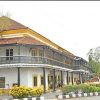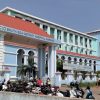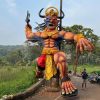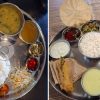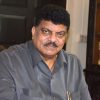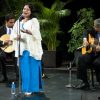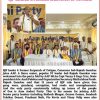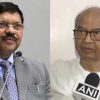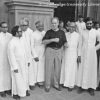Goa is abuzz with excitement as vintage bike and car owners, users, collectors and fans are decking […]
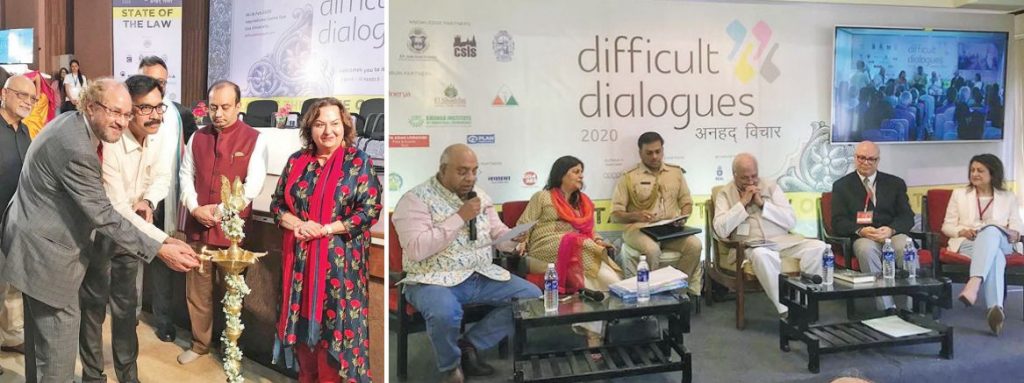
WHAT IS THE STATE OF THE LAW IN INDIA?
Feb 22- Feb 28 2020, Life & Living February 21, 2020At Difficult Dialogues (5th edition) inauguration: Lighting the lamp of law and justice Prof Paul Flather (fellow of Mansfield College, Oxford University), Prof Raj Kumar (vice chancellor of OP Jindal Global University), Member of Rajya Sabha Sudhanshu Trivedi, additional solicitor general of India Pinky Anand. Difficult Dialogues, an annual conference founded by veteran social activist and philanthropist Surina Narula, has over the last five years up for discussion global finance and civil society, health, gender inequality, education, and this year’s topic was the state of the law in South Asia.
Session on Free Speech, Censorship and the Media: (l to r) Governor of Kerala Arif Mohammed Khan, advocate Geeta Luthra, moderator Dr Annurag Batra, Justice M S Sonak (Goa High Court) and Judge Divya Sarang
By Tara Narayan
THIS year’s three-day Difficult Dialogues conference was in its fifth and possibly final edition at the International Centre Goa from February 14 to 16, 2020. As usual it left me in a jittery mood because through all the sessions on the subject of “The State of the Law” one question plagued the mind and that is how stable is the health of the largest democracy in the world that is India. The present BJP government in the seat of power may like to call it “new India” but many fear this new India may spell out more troubled times for Indians especially if they’re from the minority and underprivileged communities in the long run.
Nobody is saying it out loud or are not reading the signs, or perhaps reading them but living in denial! Nobody is asking what a majoritarian Hindu state with a Hindu or Hindutva Constitution might be all about…will India cease to be a democracy or is there something like a Hindu democracy or “democrazy?” Is Indian democracy rattling noisily in the Augean stables of political corruption and vindictiveness or so to speak?
Coming to Difficult Dialogues over the years it has gamely offered a platform for professionals from varied walks of life to participate and speak up on issues affecting them and taking on their peace of mind. This year the theme was “The State of Law” with various speakers offering little at micro level but a lot at macro level, nobody even commented outright that the country’s latest bugbear of the Citizens Amendment Law is an ill omen of what the future could be like if large sections of people will have to prove their right to be citizens of India along religious lines.
Several speakers spoke about democracy and the rule of law, after the Aadhar judgement do people have the right to privacy? Also, about gender, legal professions and the courts, is there a backlash? And reforms in administration of justice, what can help? How can we make environmental laws effective to achieve sustainability? The most engaging or difficult Difficult Dialogues session was undoubtedly the one on free speech, censorship and the media, and does the law impede freedom of speech? This session was so packed that there was hardly a seat vacant for latecomers.
The session moderated by an articulate Dr Anurag Batra (chairperson of Business World) had Justice M S Sonak (Goa High Court), advocate Geeta Luthra (senior advocate, Supreme Court of India), Governor of Kerala Arif Mohammed Khan and Judge Divya Sarang (16th Judicial Circuit, Kane Country, Illinois, USA) sharing their thoughts and views. It was the only session which started off and wound up with the national anthem out of deference to Governor Arif Mohammed Khan who was at his best when he assured media people tongue-in-cheek that “the business of journalism is to destroy the truth! You fall at the feet of mammon for daily bread…you know if you write honest opinion in 24 hours your job will be gone!”
He quipped that we talk too much of freedom of press in the largest democracy where anyone can buy up power. All governments would like to make laws to control the media, they like a media of convenience. Speaking smoothly the much loved governor didn’t ruffle too many feathers by noting that we must remember that human rights are an old concept, rooted in dignity of mankind and freedom of spirit, “India has seen alien rule for centuries but did it succeed in changing the basic character of Indians?”
Indians have survived all attempts to change the freedom of their spirit which adheres to “obedience to the unforeseeable.” He recounted a story about how when Alexander the Great invaded the India of old long ago he wanted to take back to Greece a yogi or sanyasi. He found this sanyasi sun bathing in the sun and when the shadow of Alexander and his men fell on him he asked them to move aside. As for going anywhere with Alexander the Great he told him to go to hell or something equivalent, “You can kill me and take my body, I am not body but chaitany…consciousness!”
In other words a pure peaceful consciousness is enlightened, he reassured media people, “nothing is under threat but a price has to be paid for eternal vigilance and a belief that `what I am today is in my control and that alone will ensure freedom.’” Moderator Dr Annurag Batra interjected that perhaps freedom of press is relative and dependent on context, it has to be earned. On the world index though India is 140, other countries are worse off, look at Pakistan, Ghana, Brazil.
Judge Divya Sarang observed that we have to dialogue so that truth emerges, she spoke of how the British set the foundation of our legal system based on freedom of thought, expression and speech and all these are restricted in various contexts. Also, India which has inherited the laws of colonial British Raj times needs to abolish a few outdated laws which even Britain has done away with, for example the laws to do with criminal defamation and sedition. There is so much at stake vis-à-vis the ongoing battles between media, judiciary and executive. Meaning by and large the primary freedoms are still alive and kicking in India.
Someone spoke about the need to differentiate government from country, governments come and go. Country is more important. A country can have a difference of opinion about a government but opinions are opinions, they cannot be imposed on anyone depending on the contexts in which they come. Justice Mahesh quoted Mark Twain on the freedom of speech, freedom of conscience and “the prudence to practice neither!” Referring to such flawed media practices as subjective reporting or trial by media, and hence “the judiciary must be careful that the due process of law are observed.”
The general conclusion of this enlivening, not a little amusing session, was that India is marginally better than other countries, even if the government has become oversensitive to criticism – but this is not a new situation in any vibrant democracy. Dissent and criticism is fundamental in a robust democracy and any mature government will heed it. Despite the reassurances and listening to most of it one is inclined to think the media and judiciary (two of the four pillars of democracy) are definitely rattling loudly in Indian democracy. There is palpable fear in the public mind, especially amongst the minority communities.
However the flip side of positive Difficult Dialogues is that despite the rattling — if India is spiritually democratic, it will also always be politically democratic too! Digest this hyperbole if you can. Otherwise
It is open season for media bashing despite the example of protests, threats, violence and loss of innocent lives being witnessed in the last five years. With loss of public confidence and accountability in judiciary and media how long before we see a total collapse of law and order in the country? Seriously, are we on our way to becoming yet another story of democracy is dead, long live democracy?
